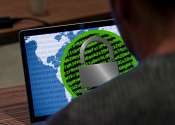If you think the millennium bug was a hoax, here comes a history lesson
It's not hard to find echoes of the late 1990s in the zeitgeist. Now as then, impeachment is on many peoples' minds, and films such as The Matrix and The Sixth Sense continue to influence culture. Another feature of the same ...
Dec 31, 2019
1
30









